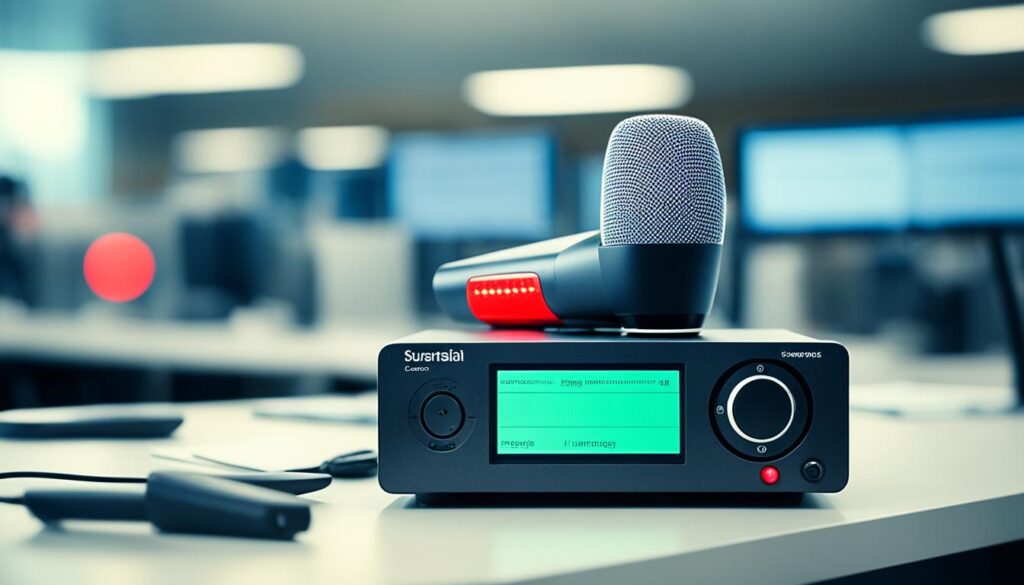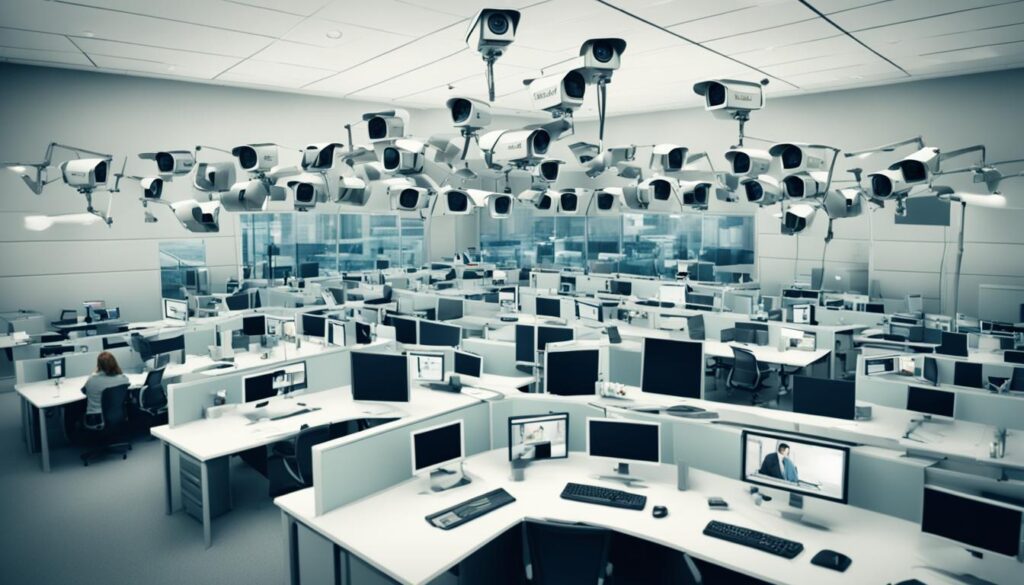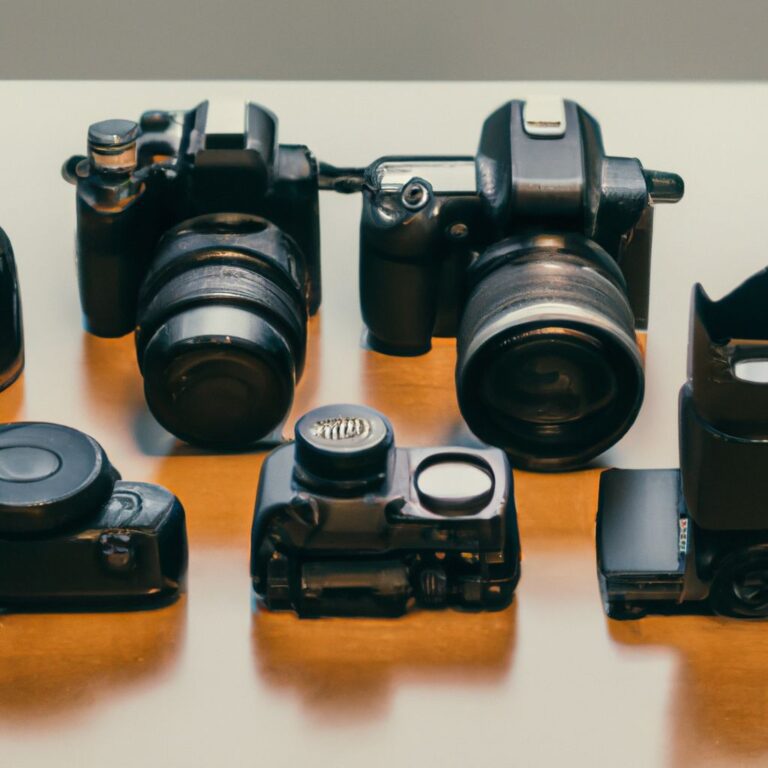are cameras with sound allowed in the workplace
When it comes to surveillance in the workplace, the use of cameras with sound can raise important questions about legality, privacy, and security. Are employers allowed to use audio surveillance devices to monitor their employees? And what are the rights and expectations of privacy for employees in such situations?
While video surveillance is common in many workplaces and generally accepted as a security measure, the inclusion of sound raises additional concerns. To determine whether cameras with sound are allowed in the workplace, it is crucial to understand the relevant laws and regulations.
Key Takeaways:
- Audio surveillance laws vary by state in the United States
- Consent laws differ between one-party consent and all-parties consent
- Audio surveillance at work is legal if all parties involved are aware of it and consent to it
- Employers can inform employees through handbooks and signage
- Covert audio surveillance is generally not permitted in public areas, public workplaces, and public stores
Audio Surveillance Laws by State: One Party Consent vs. All Parties Consent
When it comes to audio surveillance, the laws can vary from state to state in the United States. It is essential to understand the different scenarios regarding consent before engaging in audio surveillance in the workplace. Let’s explore the two main types of consent statutes: one-party consent and all-parties consent.
The Difference Between One-Party Consent and All-Parties Consent
In states with one-party consent statutes, audio surveillance is allowed if at least one person involved in the conversation is aware of and consents to the recording. This means that as long as the person conducting the recording is part of the conversation and gives their consent, the recording is legal.
On the other hand, in states with all-parties consent statutes, all individuals involved in the conversation must be aware of and give their consent to the audio recording. In these states, it is crucial to obtain the consent of every party before engaging in audio surveillance.
Understanding the audio surveillance laws specific to your state is vital to ensure compliance and avoid legal issues. Some states may have additional requirements or restrictions, so it is crucial to be familiar with the laws governing audio surveillance in your jurisdiction.
By being aware of the audio surveillance laws in your state, you can make informed decisions about using such surveillance in the workplace. It is important to prioritize legality, privacy, and consent to create a secure and respectful work environment for everyone involved.
Legalities of Audio Surveillance at Work
When it comes to audio surveillance at work, it’s essential to understand the legalities surrounding this practice. Generally, audio surveillance is legal in the workplace as long as all parties involved are aware of it and give their consent. However, the specifics can vary depending on the state you’re in and the type of consent required.
In the United States, there are 12 states that require all-party consent for audio surveillance. This means that every person involved in a conversation must be aware that they are being recorded and give their consent. On the other hand, in 38 states, one-party consent is sufficient. This means that as long as one person involved, typically the person initiating the recording, is aware and provides consent, the recording is considered legal.
To avoid legal issues, employers should always inform employees of audio surveillance practices when hiring them. This can be done through contracts and agreements that clearly state the presence of audio recording in the workplace and require the employee’s signature. By doing so, all parties will be fully informed and give their consent before any recording takes place.
It’s important to note that covert or hidden audio surveillance is generally not permitted in public areas, public workplaces, and public stores. These areas are considered to have a reasonable expectation of privacy. However, if signs indicating the presence of audio and video recording are displayed in these areas, and individuals choose to remain, the recording may become legal.
To illustrate, consider the situation where an employer wishes to record audio in a break room. If the break room is accessible to the public or customers, audio surveillance in that area may not be legally allowed without explicit consent. However, if the employer posts signs indicating the use of audio and video surveillance and employees and customers continue to use the area, the recording can be considered legal.
It’s crucial for employers to understand and abide by the relevant federal and state laws regarding audio surveillance in the workplace. By ensuring that informed consent is obtained and respecting privacy expectations in certain areas, employers can maintain a secure workplace while staying compliant with legal requirements.
Key Takeaways
– Audio surveillance at work is legal if all parties involved are aware of it and consent to it.
– There are 12 states that require all-party consent for audio surveillance, while one-party consent is sufficient in 38 states.
– Employers can avoid legal issues by informing employees of audio surveillance through contracts and agreements.
– Covert audio surveillance is generally not permitted in public areas, public workplaces, and public stores, unless signage is displayed and individuals choose to remain.
Audio Surveillance Equipment and Legal Considerations

When it comes to audio surveillance equipment, it is essential to understand the legality surrounding its use to avoid any legal issues. In the United States, most audio recordings are illegal unless certain conditions are met.
The Electronic Communications Privacy Act (ECPA), a federal law in the United States, prohibits the interception of electronic communications without the consent of at least one party involved. This means that recording audio conversations without consent is generally illegal.
Moreover, each state may have additional regulations regarding audio recording, so it is crucial to be familiar with the specific laws in your state. These laws can differ, and what may be legal in one state could be illegal in another.
By understanding and abiding by federal and state laws concerning audio surveillance equipment, you can ensure that your use of such technology remains legal and compliant. It is always better to err on the side of caution when it comes to privacy and security.
Respecting Privacy Expectations
When deploying audio surveillance equipment, it is essential to exercise caution and respect privacy expectations. Certain areas, such as bathrooms, dressing rooms, and showers, are considered private, and recording in these spaces is generally forbidden.
Respecting privacy expectations not only upholds legal requirements but also helps maintain a positive and trusting environment in the workplace. It is important to strike a balance between security and privacy to ensure the well-being of both employees and customers.
By adhering to the laws and regulations surrounding audio surveillance equipment and being mindful of privacy expectations, you can maintain a secure and legally compliant environment.
Notifying Employees and Customers About Video Surveillance

In most workplaces, employers are required to inform employees about the use of video surveillance. This is crucial for maintaining transparency, trust, and ensuring compliance with privacy laws. To fulfill this requirement, employers typically include information about video surveillance in employee handbooks or policies, which employees must read and acknowledge. Additionally, signs can be posted in visible areas to notify employees of the presence of video surveillance systems.
It is important to note that hidden cameras can infringe upon workplace privacy rights and may not be legally permitted in most circumstances. Employers should avoid using covert surveillance devices without a valid reason, as this could lead to legal consequences and negatively impact employee morale. Instead, businesses should focus on maintaining a safe and secure work environment while respecting privacy expectations.
When it comes to notifying customers about video surveillance, the rules can be slightly different. While there may not be a legal obligation to explicitly disclose the presence of security cameras to customers, it is essential to ensure that their reasonable expectations of privacy are respected. Customers should not be unknowingly monitored in private areas such as restrooms or changing rooms.
To strike a balance between security and privacy, it is advisable to make security cameras visible and strategically place them in public areas. The mere presence of cameras acts as a deterrent against potential misconduct and enhances overall safety. However, it is crucial to review and comply with local laws and regulations regarding signage requirements to avoid any legal issues.
Conclusion
Audio surveillance in the workplace can be a legal tool to ensure the security and safety of the workplace, as long as it is done within the boundaries of the law and respects individuals’ privacy rights. The legality of audio surveillance varies by state, and it is crucial for employers and individuals to be familiar with the specific laws in their respective states.
Employers should inform employees about the presence of audio surveillance through comprehensive employee handbooks and prominently displayed signage within the workplace. By ensuring that all parties involved are aware of and consent to the audio surveillance, businesses can establish a transparent and legally compliant monitoring system.
However, it is important to note that audio surveillance is generally not permitted in public areas, public workplaces, and public stores. Respecting individuals’ privacy rights in these spaces is essential to maintain legal compliance and ethical standards.
By understanding and adhering to the laws and regulations surrounding audio surveillance, businesses can strike a balance between workplace security and privacy. Implementing audio surveillance measures within the legal framework can help create a safe and secure environment for employees while upholding their privacy rights.



